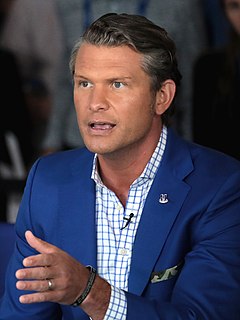A Quote by Renee Montagne
There are no women in these ground combat jobs.Women, of course, have been flying combat missions in fighter jets, attack helicopters, for more than 20 years, but beginning this week, those ground combat jobs in infantry, artillery and armor will be open to women. Officials don't expect a rush of women interested.
Related Quotes
The combat exclusion policy was adopted during the Clinton Administration in 1994 and says women can 'be assigned to all positions for which they are qualified, except that women shall be excluded from assignment to units below the brigade level whose primary mission is to engage in direct combat on the ground.'
Women have always been the primary victims of war. Women lose their husbands, their fathers, their sons in combat. Women often have to flee from the only homes they have ever known. Women are often the refugees from conflict and sometimes, more frequently in today's warfare, victims. Women are often left with the responsibility, alone, of raising the children.
Women should be permitted to volunteer for non-combat service... We have no real way of knowing whether the kinds of training that teach men both courage and restraint would be adaptable to women or effective in a crisis. But the evidence of history and comparative studies of other species suggest that women as a fighting body might be far less amenable to the rules that prevent war from becoming a massacre and, with the use of modern weapons, that protect the survival of all humanity. That is what I meant by saying that women in combat might be too fierce.




























